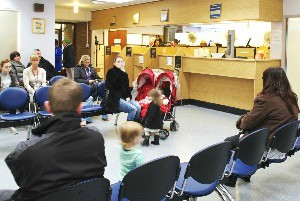The backdated service charge demands by the Department of Health operated NHS Property Services is a controversial issue to hit our healthcare frontline.
At a time when primary care is under more pressure than ever before, GPs are being asked to find huge amounts of money – the figures routinely running into tens of thousands of pounds – to cover service charge payments on their premises, in some cases dating back several years. GPs have rightly said this is an intolerable burden, which could cast serious doubts over the ability of many practices to continue to function.
NHS Property Services told Pulse that the charges are not new and what has changed is ’subsidy arrangements with NHS England and the fact that the costs are now transparent on the bills’, with some costs having gone down.
But before agreeing to anything, it is important that GPs are clear about their options. While GPs will of course be unnerved by these demands, they should seek professional legal advice before making additional payments.
What if you don’t have a formal lease?
Generally, the position is different for GPs who have a formal lease in place to those who do not – and indeed each individual GP’s circumstances will be slightly different.
For GPs who have traditionally had a lease for their premises and accompanying charges, generally speaking unless the lease allows for such charges, a formal variation would need to be made to their lease which has been agreed by both landlord and tenant to allow for the new charges. Where this has not happened, then a strong case could be made to argue there is no legal basis for these additional charges being made.
For those without a formal lease, where such items have not previously been charged, it is difficult to see a basis for NHS Property Services to start unilaterally charging for them. For GPs in this situation, it is important to gather evidence as far back as the last decade of occupation to see what they have been charged for historically – in many situations, there will be a very persuasive argument as to why NHS Property Services cannot now come calling for significant backdated payments.
What you should do:
- Upon receiving an invoice from NHS Property Services, request a full itemised breakdown of the costs included. This must include a breakdown of any generic service charge headings, such as Soft FM and Hard FM.
- If you have a lease, get a copy of it and any variations that have been made to it.
- Gather as much information as possible to show what you have paid over the past few years and any breakdowns of those payments, showing the services covered.
- If you do not have a lease, go back as far as possible to gather information to strengthen you case.
- Seek legal advice on how to proceed before paying any additional sums to NHS Property Services – speak to a specialist advisor to the profession, who will be fully abreast of the latest developments and arrangements relating to NHS premises and reimbursement.
Victoria Armstrong is a partner in the specialist healthcare team at Sintons
Pulse October survey
Take our July 2025 survey to potentially win £1.000 worth of tokens












